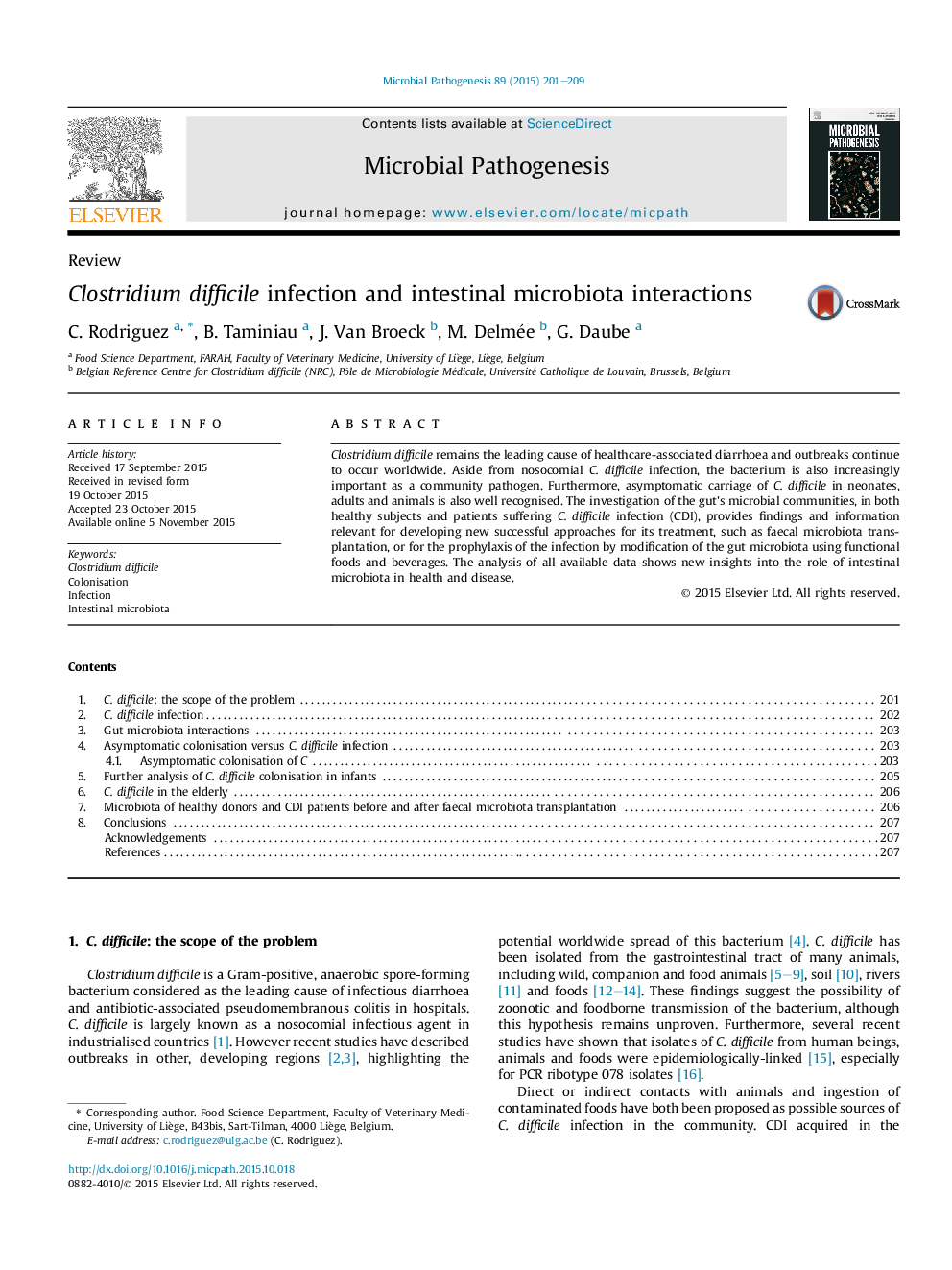| Article ID | Journal | Published Year | Pages | File Type |
|---|---|---|---|---|
| 3416462 | Microbial Pathogenesis | 2015 | 9 Pages |
•Clostridium difficile is the main cause of antibiotic associated diarrhea.•Metagenetic and genomic studies have highlighted the importance of the gut microbiota in C. difficile pathogenesis.•An alteration in the intestinal populations of individuals colonized by C. difficile without signs of infection has been also observed.•The investigation of the gut's microbial communities provides information relevant for developing new treatment for C. difficile infection.
Clostridium difficile remains the leading cause of healthcare-associated diarrhoea and outbreaks continue to occur worldwide. Aside from nosocomial C. difficile infection, the bacterium is also increasingly important as a community pathogen. Furthermore, asymptomatic carriage of C. difficile in neonates, adults and animals is also well recognised. The investigation of the gut's microbial communities, in both healthy subjects and patients suffering C. difficile infection (CDI), provides findings and information relevant for developing new successful approaches for its treatment, such as faecal microbiota transplantation, or for the prophylaxis of the infection by modification of the gut microbiota using functional foods and beverages. The analysis of all available data shows new insights into the role of intestinal microbiota in health and disease.
